NYC begins handing out migrants taxpayer-funded, pre-paid debit cards at Roosevelt Hotel shelter, with 450 people set to begin receiving up to ‘$18,200-a-year’ payout by the end of this week
Migrant families in New York City have started receiving prepaid debit cards as part of a controversial plan that could see them receive up to $18,200 a year.
Officials began handing out the cards to the first 10 newcomers Monday at the city’s Roosevelt Hotel shelter.
The cards come pre-loaded with a week’s worth of credit and will be rolled out to 115 families, equivalent to 450 people, by the end of the week.
Mayor Eric Adams is moving ahead with the $53 million plan despite an angry backlash amid fears the cards are open to misuse.
The debit cards can only be used at supermarkets and bodegas, according to the city manager. A family of four with two children can receive up to $350 per week, depending on the age of the children.
Migrant families in New York City have started receiving prepaid debit cards as part of a controversial plan that could see them receive up to $18,200 a year
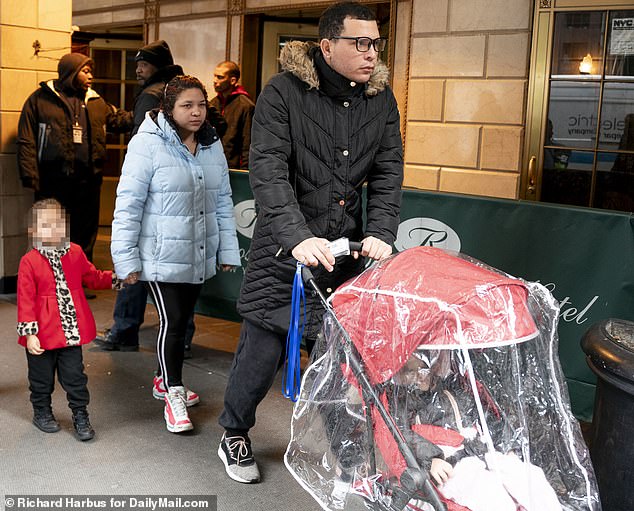
Officials began handing out the cards to the first 10 newcomers Monday at the city’s Roosevelt Hotel shelter
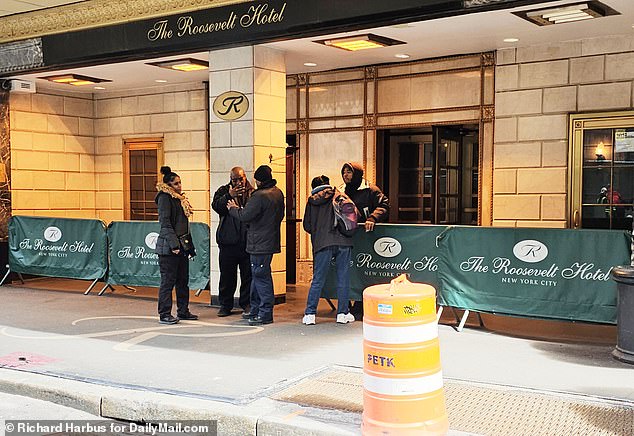
The cards come pre-loaded with a week’s worth of credit and will be rolled out to 115 families, equivalent to 450 people, by the end of the week
Participants must also sign an affidavit swearing that they will only use the cards for food or baby supplies, at the risk of being removed from the program.
But critics, including Adams’ rival on the migrant crisis, Texas Gov. Greg Abbott and Queens-born rapper 50 Cent, have questioned why migrants are more likely to get the cards than struggling New Yorkers.
Abbott branded the “offensive” plan as “madness” but supporters say it will help the city cope with pressure on its services caused by a surge of migrants in recent months.
In the past two years, 180,000 asylum seekers entered New York, 65,000 of whom were still in shelters.
Adams insists the debit cards will too save the city $600,000 a month, or $7.2 million a year, by allowing migrants to spend money that goes back into the local economy, instead of the city spending money on boxes of food.
Joseph Borelli, the council’s Republican minority leader, acknowledged there would be savings but questioned the amount spent on migrants.
“Many New Yorkers will view this as something that is fundamentally unfair,” he told the paper New York Times. “There are plenty of New Yorkers struggling to pay their bills.”
Adams’ decision to urgently award the debit card contract to Mobility Capital Finance without competing bids from other companies has also raised eyebrows.
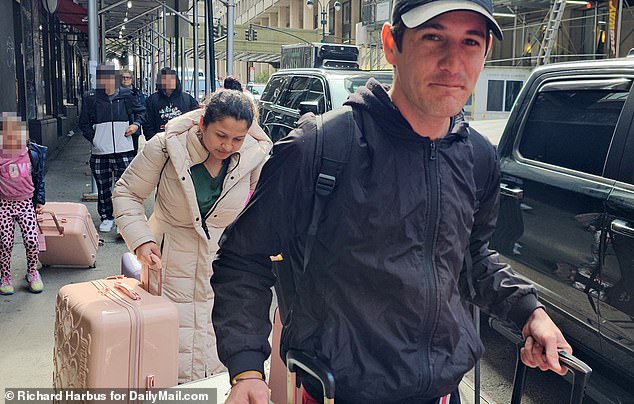
A family of four with two children can receive up to $350 per week, depending on the age of the children
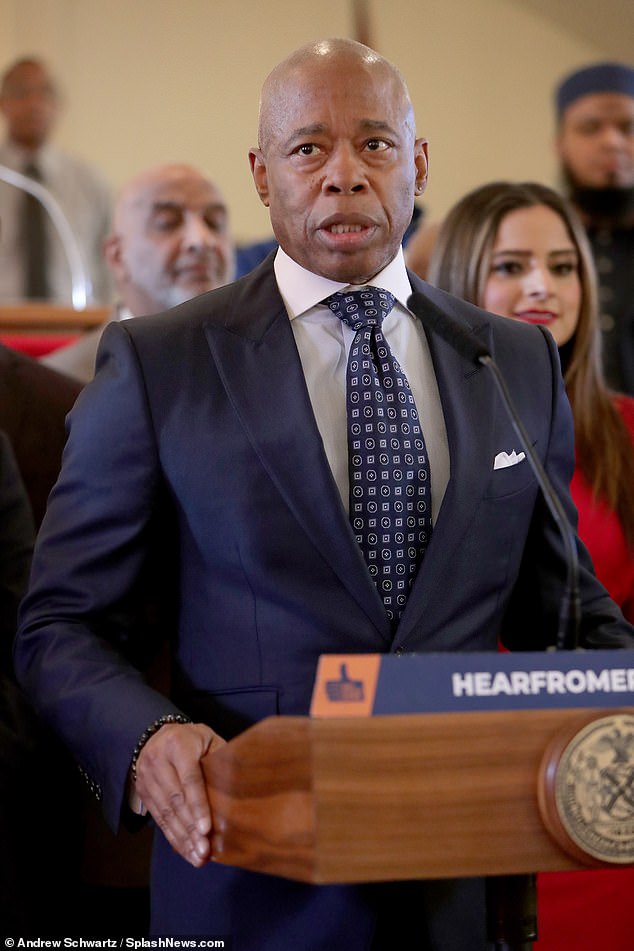
Mayor Eric Adams insists the debit cards will save the city $600,000 a month, or $7.2 million a year
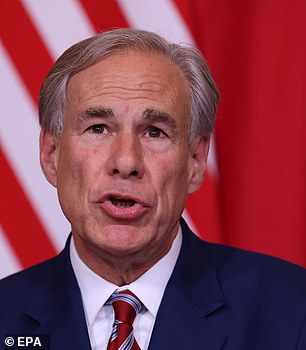

The plans went ahead despite a fierce response from the likes of Texas Governor Greg Abbott (left) and Queens-born 50 Cent
His government was criticized for entering into a $434 million contract with DocGo, a medical services company whose work on the migrant crisis has been mired in controversy.
Adams has spent $570,000 on the contract so far, including a $125,000 starting fee for the company, advances for the cards and $3 per card to make them.
CEO Wole Coaxum emphasized that the digital encryption on the cards ensures they only work in pre-approved stores, with families also asked to keep receipts.
His said company has worked on universal basic income cards in other cities, including Los Angeles and Newark, NJ, where they were not misused.
“What we found in each of these cases is that people are spending the money for the intended purpose,” he said in an interview.
The city can remove people from the program if they are found to be committing fraud. Officials plan to collect data on the first families to receive the cards before rolling them out further.
New York’s deputy mayor for health and human services, Anne Williams-Isom, defended the plan, saying “it doesn’t pit groups against each other” since there are other programs such as food stamps and cash assistance for native New Yorkers.
“I struggle with why people are so negative about providing something so basic to families with children,” she said.
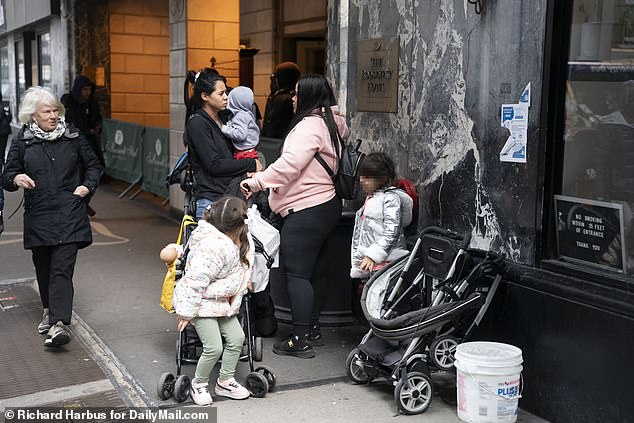
In the past two years, 180,000 asylum seekers have entered New York, with 65,000 still in shelters
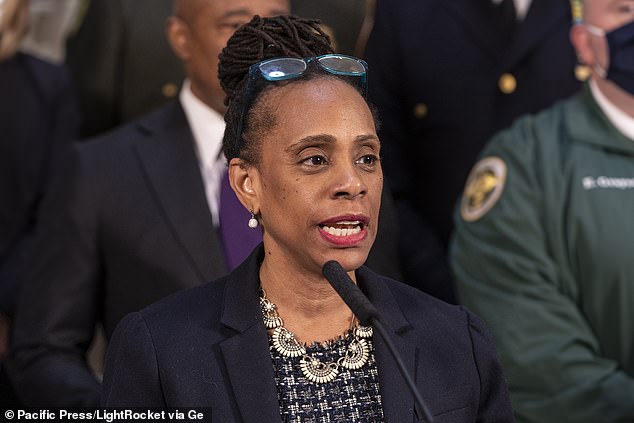
New York’s deputy mayor for health and human services, Anne Williams-Isom, defended the plan
In 2023, approximately 70,000 migrants were transported to New York City by bus or plane, putting an extreme strain on the Big Apple’s resources.
Governor Abbott began sending migrants to NYC and other Democratic-led cities that consider themselves “sanctuaries” for border crossings to show them how much pressure the crisis has put on border states.
His plan appears to have worked — with Democratic lawmakers taking a much tougher stance on the crisis and President Biden himself promising to take stronger steps to address it.
